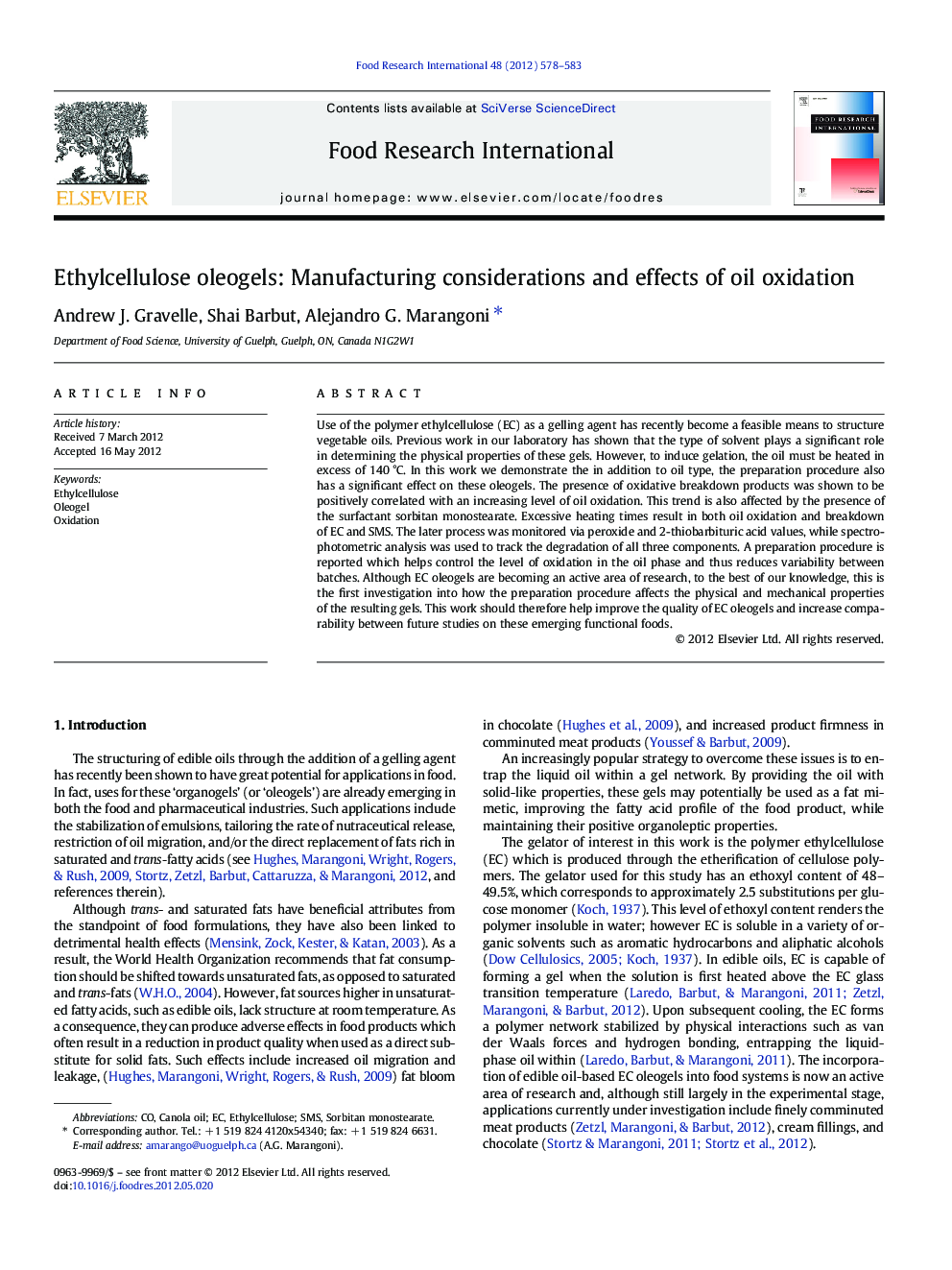| Article ID | Journal | Published Year | Pages | File Type |
|---|---|---|---|---|
| 6398636 | Food Research International | 2012 | 6 Pages |
Use of the polymer ethylcellulose (EC) as a gelling agent has recently become a feasible means to structure vegetable oils. Previous work in our laboratory has shown that the type of solvent plays a significant role in determining the physical properties of these gels. However, to induce gelation, the oil must be heated in excess of 140 °C. In this work we demonstrate the in addition to oil type, the preparation procedure also has a significant effect on these oleogels. The presence of oxidative breakdown products was shown to be positively correlated with an increasing level of oil oxidation. This trend is also affected by the presence of the surfactant sorbitan monostearate. Excessive heating times result in both oil oxidation and breakdown of EC and SMS. The later process was monitored via peroxide and 2-thiobarbituric acid values, while spectrophotometric analysis was used to track the degradation of all three components. A preparation procedure is reported which helps control the level of oxidation in the oil phase and thus reduces variability between batches. Although EC oleogels are becoming an active area of research, to the best of our knowledge, this is the first investigation into how the preparation procedure affects the physical and mechanical properties of the resulting gels. This work should therefore help improve the quality of EC oleogels and increase comparability between future studies on these emerging functional foods.
⺠Oleogels can replace fat, impart heat resistance and act as a moisture barriers. ⺠An improved oleogel manufacturing method minimizes oil oxidation and color changes. ⺠Oil oxidation leads to increases in gel strength. ⺠Back extrusion is successfully used to characterize gels of different hardness.
